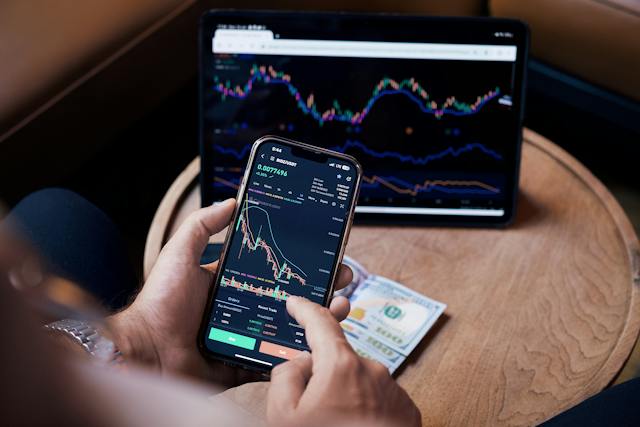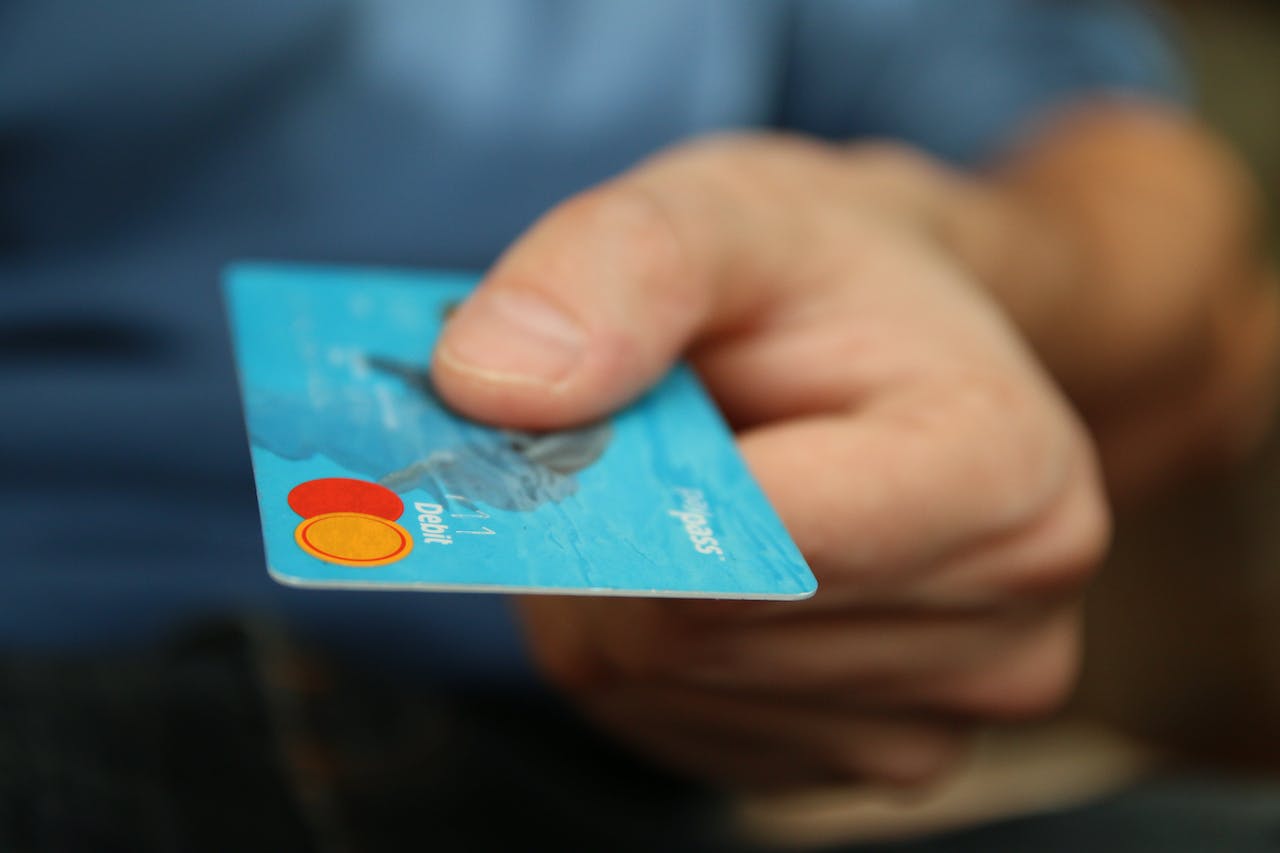As economic uncertainties loom, it’s more important than ever to take control of your finances and build resilience against potential downturns. One of the most effective ways to do this is by optimizing your spending on utilities, gas, and groceries. In this how-to guide, we will provide practical steps to help you save money on these essential expenses and create a financial buffer for a more secure future.
Reducing Utility Bills
Utility bills can be a significant drain on your finances, but there are ways to cut down on these expenses:
1. Conduct an Energy Audit:
- Start by identifying areas of energy waste in your home. Inspect doors, windows, and insulation for drafts. Look for energy-efficient appliances and lighting options.
2. Weatherproof Your Home:
- Seal gaps and cracks in windows and doors with weatherstripping. Upgrade insulation where necessary. These steps can significantly reduce heating and cooling costs.
3. Adjust Thermostat Settings:
- Lower your thermostat in the winter and raise it in the summer when you’re not at home or at night. A programmable thermostat can automate this process.
4. Use Energy-Efficient Appliances:
- Invest in Energy Star-rated appliances, which consume less electricity and water. Over time, this can lead to substantial savings.
5. Unplug Devices When Not in Use:
- Many devices continue to draw power even when turned off. Unplug chargers, electronics, and appliances when they’re not in use to save on “phantom” energy consumption.
Cutting Gas Expenses
Gas prices can fluctuate, but you can adopt habits to minimize your fuel consumption:
1. Carpool or Use Public Transportation:
- Whenever possible, share rides with others or use public transportation. This reduces both fuel expenses and your carbon footprint.
2. Optimize Driving Habits:
- Practice fuel-efficient driving by avoiding sudden accelerations, maintaining a steady speed, and reducing idling time. Regular car maintenance, such as changing air filters and keeping tires properly inflated, also improves fuel efficiency.
3. Combine Errands:
- Plan your trips to accomplish multiple errands in a single outing. This minimizes the number of short trips, which are less fuel-efficient.
4. Consider a Fuel-Efficient Vehicle:
- If you’re in the market for a new car, look for one with good gas mileage or consider a hybrid or electric vehicle to reduce fuel costs in the long run.
5. Explore Alternative Transportation:
- For short trips, consider walking or biking. It’s not only cost-effective but also promotes a healthier lifestyle.
Smart Grocery Shopping
Groceries are a necessary expense, but you can be savvy about your spending:
1. Create a Budget:
- Determine how much you can afford to spend on groceries each month and stick to it. Plan your meals accordingly.
2. Make a Shopping List:
- Before heading to the store, make a list of the items you need. Stick to the list to avoid impulsive purchases.
3. Buy Generic Brands:
- Often, generic or store brands are just as good as name brands but come at a lower price. Give them a try to save on your grocery bill.
4. Buy in Bulk:
- Non-perishable items and products with a long shelf life, such as pasta, rice, and canned goods, can be bought in bulk to save money in the long term.
5. Avoid Eating Out Frequently:
- Dining at restaurants or ordering takeout can quickly add up. Limit eating out and prioritize home-cooked meals.
Building Economic Resilience
Now that you’ve learned how to save money on utilities, gas, and groceries, let’s discuss how to build economic resilience:
1. Create an Emergency Fund:
- Set aside a portion of your savings as an emergency fund. Aim for three to six months’ worth of living expenses. This safety net can provide financial security during unexpected events.
2. Reduce Debt:
- High-interest debt can be a significant financial burden. Prioritize paying down credit card balances and loans to free up more money for savings and investments.
3. Diversify Investments:
- Explore investment options beyond traditional savings accounts. Diversify your portfolio with stocks, bonds, and other assets to potentially grow your wealth over time.
4. Continuously Educate Yourself:
- Stay informed about financial matters, investment strategies, and economic trends. Knowledge is a powerful tool for making informed financial decisions.
5. Seek Professional Guidance:
- Consider consulting a financial advisor or planner to help you create a personalized financial plan. They can provide expert insights tailored to your specific goals and circumstances.
By implementing these strategies to reduce utility bills, cut gas expenses, and shop smartly for groceries, you can free up more money in your monthly budget. This extra cash can then be channeled into building economic resilience, creating an emergency fund, reducing debt, and making wise investments. With these steps, you’ll be better prepared to weather economic downturns and achieve long-term financial security. Remember, small changes in your daily habits can lead to significant savings and a more resilient financial future.
Consumer Confidence Declines as Inflation Hits: What It Means for the Economy
In recent months, the American economic landscape has experienced a notable shift in sentiment. The once-optimistic outlook on the resilience of the US consumer and the overall economy has given way to concerns. This shift is evident in the declining Consumer Confidence Index, which saw its most significant monthly drop since December 2020. In this article, we will delve into the factors driving this decline, the potential consequences, and what it means for everyday Americans.
Understanding the Consumer Confidence Index
The Consumer Confidence Index, published by the Conference Board, is a key economic indicator that gauges the sentiment of American consumers regarding current and future economic conditions. In September, the index plummeted to 103 from 108.7 in August, signaling a sudden change in consumer sentiment.
The Role of the Expectations Index
One crucial component of the Consumer Confidence Index is the Expectations Index, which assesses consumers’ short-term outlook for income, business conditions, and labor market conditions. In September, the Expectations Index dipped to a concerning 73.7, down from 83.3 in August and 88 in July. Historically, any reading below 80 has been a harbinger of an impending recession.
Factors Behind the Decline
Several factors have contributed to this decline in consumer confidence:
- Inflationary Pressures: Notably, food and gas prices have surged recently, causing concerns among consumers. As prices rise, consumers may feel the pinch on their wallets, leading to a decrease in confidence.
- Interest Rate Uncertainty: Worries about the Federal Reserve keeping interest rates elevated for an extended period have added to consumers’ anxieties. Higher interest rates can impact borrowing costs and overall economic stability.
- Political Uncertainty: The political climate also plays a role in shaping consumer sentiment. Ongoing political uncertainties can create doubt about the future, making consumers hesitant to spend.
- Economic Headwinds: Wall Street economists have highlighted various headwinds, including rising oil prices, labor strikes, the resumption of student loan payments, and the looming possibility of a government shutdown. All of these factors can weigh heavily on consumer confidence.
The Impact on the Economy
Consumer confidence is more than just a number; it has real-world implications for the economy. When consumers are confident, they tend to spend more freely, boosting economic growth. Conversely, declining confidence can lead to reduced spending, potentially stalling economic progress.
Expert Insights
Dana Peterson, the chief economist at The Conference Board, notes that consumers’ pessimistic expectations for the next six months are rooted in concerns about future business conditions, job availability, and incomes. Peterson emphasizes that consumers are likely reacting to negative news about corporate earnings, a narrowing job market, and rising interest rates, all of which can make big-ticket purchases less attractive.
What Economists Are Saying
Leading economists are also voicing their concerns. Oxford Economics US economist Matthew Martin anticipates a slowdown in consumption in the fourth quarter of the year as a result of these rising headwinds. The recent decline in consumer confidence is seen as a confirmation of this prediction.
The Role of Stimulus and Savings
During the early post-pandemic era, consumer confidence and spending remained resilient, primarily due to stimulus measures and abundant savings. However, this dynamic is shifting. Wells Fargo senior economist Tim Quinlan points out that savings are dwindling, and credit is becoming scarcer and costlier. This situation makes the recent decline in consumer confidence potentially more impactful on actual spending habits.
What’s Next for Consumers
As the economic landscape evolves, it’s essential for consumers to adapt to changing conditions. The recent decline in consumer confidence serves as a wake-up call for many. Here are some practical steps to consider:
- Budget Wisely: In an uncertain economic environment, maintaining a well-structured budget is crucial. Track your expenses, prioritize essential purchases, and cut down on discretionary spending.
- Evaluate Debt: With credit becoming scarcer and costlier, it’s prudent to manage your existing debts carefully. Focus on paying down high-interest debts and avoid taking on unnecessary new debt.
- Save and Invest: In times of economic uncertainty, having a financial safety net is essential. Continue saving for emergencies and consider investment options that align with your long-term goals.
- Stay Informed: Keep yourself informed about economic developments, as this can help you make informed financial decisions. Follow trusted news sources and consult with financial experts if needed.
- Adapt and Thrive: Economic conditions are ever-changing. Adaptability is key to financial success. Be prepared to pivot your financial strategy as circumstances evolve.
The recent decline in consumer confidence serves as a significant indicator of shifting economic sentiment. Rising inflation, interest rate uncertainty, and various economic headwinds are contributing to this decline. While it’s essential to be aware of these challenges, it’s equally important to take proactive steps to secure your financial well-being. By budgeting wisely, managing debt, saving, and staying informed, you can navigate these uncertain times with confidence and resilience.
In conclusion, the decline in consumer confidence is a crucial economic development that warrants attention. The repercussions of this decline are far-reaching, impacting both individual finances and the broader economy. By understanding the factors driving this decline and taking proactive steps to adapt to changing economic conditions, consumers can weather these challenges and emerge stronger on the other side.
FAQs
1. Question: What is the Consumer Confidence Index, and why is it essential for the economy?
Answer: The Consumer Confidence Index measures consumer sentiment regarding current and future economic conditions. It’s vital because it reflects consumer spending patterns, which significantly impact the overall economy.
2. Question: How can I reduce my utility bills without sacrificing comfort?
Answer: You can lower utility bills by conducting an energy audit, weatherproofing your home, adjusting thermostat settings, using energy-efficient appliances, and unplugging devices when not in use.
3. Question: What steps can I take to cut down on gas expenses when fuel prices are high?
Answer: To reduce gas expenses, consider carpooling, optimizing driving habits, combining errands, exploring alternative transportation for short trips, and choosing fuel-efficient vehicles.
4. Question: What are some practical strategies for smart grocery shopping?
Answer: Smart grocery shopping involves creating a budget, making a shopping list, buying generic brands, buying in bulk for non-perishable items, and limiting eating out.
5. Question: How can I create an emergency fund, and why is it essential for economic resilience?
Answer: To create an emergency fund, set aside a portion of your savings. It’s essential because it provides financial security during unexpected events, preventing you from going into debt.
6. Question: Should I prioritize paying off high-interest debt or building an emergency fund first?
Answer: It’s generally advisable to pay off high-interest debt before building an emergency fund to reduce financial burdens and interest costs.
7. Question: What is diversification in investments, and why is it important?
Answer: Diversification involves spreading your investments across different asset classes. It’s essential to reduce risk and potentially increase returns over time.
8. Question: How can I stay informed about financial matters and economic trends?
Answer: Stay informed by reading financial news, following reputable financial blogs, and considering financial literacy courses or seminars.
9. Question: When is the right time to consult a financial advisor or planner?
Answer: Consider consulting a financial advisor when you need personalized financial guidance, help with complex financial decisions, or assistance in creating a comprehensive financial plan.
10. Question: Can small changes in daily habits really lead to significant savings?
Answer: Yes, small changes, such as reducing utility consumption or avoiding impulse purchases, can accumulate over time, leading to substantial savings and improved financial stability.
Tags:
- Consumer Confidence Index
- Utility Bills
- Gas Expenses
- Grocery Shopping
- Economic Resilience
- Emergency Fund
- High-Interest Debt
- Diversification
- Financial Advisor
- Financial Literacy










